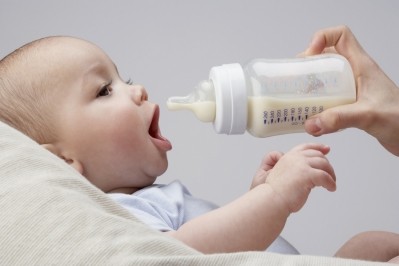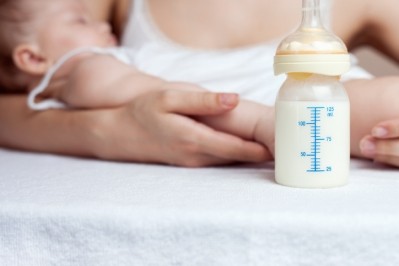Study sheds light on disruptions to infant gut microbiome from COVID-19 pandemic

The first 12 months of the COVID-19 pandemic led to a raft of public health recommendations and orders to try to slow the spread of the SARS-CoV-2 virus. Top of the list was increased cleaning, limited social contacts, and even stay-at-home orders (lockdowns).
Prior research has indicated that such directives will impact the composition of the gut microbiome, particularly during early childhood. Researchers from the University of California, Los Angeles and New York University have now reported for the first time that infants born at the start of the pandemic had lower diversity in the gut microbiome.
The study, published in Scientific Reports (a Nature journal), compared stool samples obtained from socioeconomically and racially diverse one-year old infants in New York pre-pandemic and samples from infants obtained between March–December 2020.
“Exploratory analyses suggest that gut microbiome changes due to the pandemic occurred relatively quickly after the start of the pandemic and were sustained,” wrote the researchers. “Our results provide evidence that pandemic-related environmental disruptions had an impact on community-level taxonomic diversity of the developing gut microbiome, as well as abundance of specific members of the gut bacterial community.”
‘A watershed moment’
The results were described as “unfortunately not surprising” by Lydia Mapstone, PhD, CEO and Co-founder of BoobyBiome.
Commenting independently on the study’s findings, Dr Mapstone said: “In the last couple of years while working at BoobyBiome, I have had so many discussions on how the COVID-19 lockdowns might have influenced infant microbiome development. To what extent would the increased cleaning and social isolation actually have an impact?
“Finally, the first paper investigating this question has been released!
“These results unfortunately aren’t surprising. While this study didn't delve into the long-term health implications, it's worth noting that reduced alpha diversity at this stage has been linked, in some cases, to conditions like asthma, atopic dermatitis, food allergies, and type 1 diabetes.
“I suspect this is a watershed moment, with many more follow up studies assessing the far-reaching consequences of the pandemic to come.”
Study details
Stool samples were obtained from one-year olds in New York City before the pandemic (34 infants) and again during the first nine-months of the pandemic (20 infants). Analysis of these samples revealed that the pandemic infants sampled had less diverse microbiomes (alpha diversity) with a lower abundance of Pasteurellaceae and Haemophilus.
In addition, the microbial richness of the two groups was “significantly different” (beta diversity).
“These results suggest that pandemic-related environmental disruptions had an impact on community-level taxonomic diversity of the early life gut microbiome as well as abundance of specific members of the gut bacterial community,” wrote the researchers.
“Further research is needed to understand if differences in gut microbiome composition have persisted for these children, how pandemic disruptions may have influenced the gut microbiome of children at different developmental stages, and the long-term implications of these microbiome differences for children’s health-related outcomes.
“Results can inform our scientific understanding of microbiome plasticity to changing environmental conditions and contribute to a growing body of research on child development during the pandemic,” they concluded.
Source: Scientific Reports
2023, 13, 13289. Doi: 10.1038/s41598-023-40102-y
“A comparison of the infant gut microbiome before versus after the start of the covid-19 pandemic”
Authors: F.R. Querdasi, et al.
















